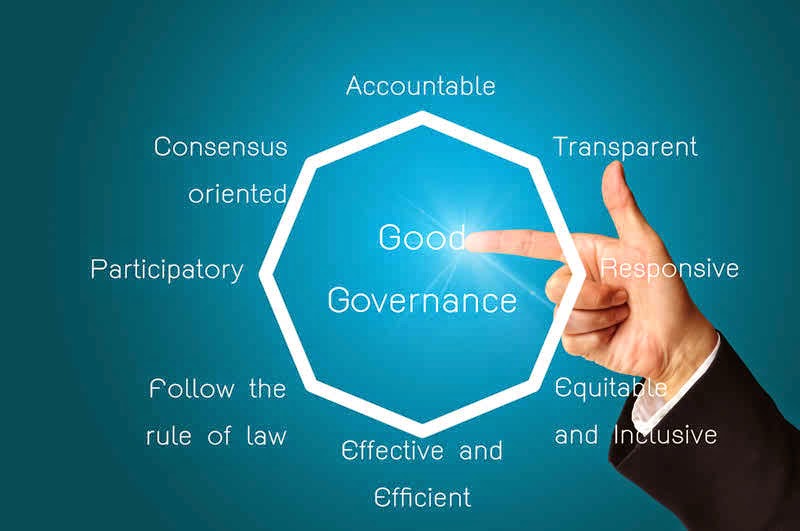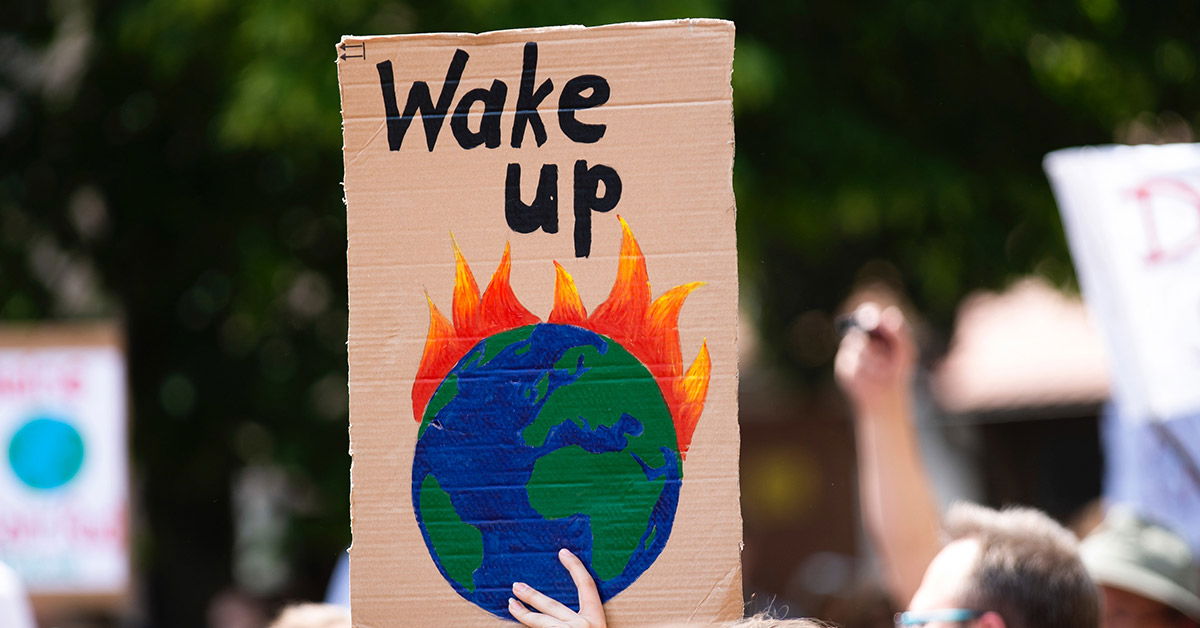Crisis Deepens for U.K. Entertainment Freelancers as 44% Earn Below Living Wage – Variety

Report on the UK Entertainment Freelancer Crisis and its Implications for Sustainable Development Goals
Executive Summary: A Failure to Uphold Decent Work and Economic Growth (SDG 8)
A final report from Freelancers Make Theatre Work (FMTW), titled “Who’s Taking the Hit?,” reveals a severe and escalating crisis among the United Kingdom’s entertainment freelancers. The findings indicate a significant regression in achieving key Sustainable Development Goals (SDGs), particularly SDG 8 (Decent Work and Economic Growth), SDG 1 (No Poverty), SDG 3 (Good Health and Well-being), SDG 5 (Gender Equality), and SDG 10 (Reduced Inequalities). The data, gathered from 1,270 freelancers across sectors including theatre, film, TV, and live events, paints a picture of an unsustainable industry where the workforce faces profound economic precarity and declining well-being.
Economic Precarity vs. SDG 1 (No Poverty) and SDG 8 (Decent Work)
The survey highlights a dramatic failure to provide freelancers with stable and fair employment, directly undermining the principles of decent work and pushing many towards poverty.
- Sub-Minimum Wage Earnings: 44% of surveyed freelancers earned less than the U.K. national living wage in the 2023-24 financial year, a sharp increase from 34% in the previous year.
- Unpaid Labour: 32% of respondents reported working 50% or more of their hours unpaid.
- Income Stagnation and Decline: While 75% experienced increased work-related expenses, 40% suffered a decrease in earnings, with only 30% reporting an income increase.
- Geographical Disparity: In London, the industry’s hub, 53% of freelancers earn below the London Living Wage, making it unaffordable for the majority of the workforce, which challenges SDG 11 (Sustainable Cities and Communities).
These conditions are in direct opposition to SDG 8, which promotes “sustained, inclusive and sustainable economic growth, full and productive employment and decent work for all.”
Exacerbated Inequalities: A Setback for SDG 5 (Gender Equality) and SDG 10 (Reduced Inequalities)
The crisis disproportionately affects marginalized groups, demonstrating a clear failure to reduce inequalities within the industry.
- Disability Disparity: 55% of freelancers with disabilities earn below the national living wage.
- Socioeconomic Disparity: 54% of those from less-privileged socioeconomic backgrounds earn below the national living wage.
- Gender Disparity: 47% of female respondents earn below the national living wage, highlighting a significant obstacle to achieving SDG 5.
These statistics reveal systemic issues that prevent equal opportunity and reinforce existing societal inequalities, contrary to the aims of SDG 10.
Deteriorating Well-being and Industry Exodus: A Threat to SDG 3 (Good Health and Well-being)
The persistent financial and professional insecurity is having a severe impact on the mental health of the freelance workforce, a critical component of SDG 3.
- Mental Health Decline: 39% of respondents reported that their mental health had worsened over the past year.
- Pervasive Insecurity: 70% of freelancers feel “quite” or “very insecure” about their careers.
- Workforce Attrition: A quarter of all freelancers are considering leaving the industry entirely, citing low pay (68%), lack of work (57%), and mental health concerns (52%) as primary drivers.
Systemic Challenges and the Need for Stronger Institutions (SDG 16)
The report identifies several underlying factors contributing to the crisis, pointing to a need for stronger institutional frameworks to protect workers, in line with SDG 16 (Peace, Justice and Strong Institutions).
- Funding Deficits: Only 8% of respondents received funding from Arts Councils or Creative Scotland, indicating a challenging environment for independent artists.
- External Pressures: Respondents cited the negative impacts of Brexit on touring and a slow post-pandemic recovery as ongoing challenges.
- Technological Disruption: The rise of Artificial Intelligence is a growing source of insecurity, particularly for those in voiceover and composition.
- Inadequate Representation: While union membership stands at 56%, affordability and a lack of role-specific representation were cited as barriers to joining.
Recommendations for a Sustainable Future
FMTW concludes with recommendations aimed at creating a sustainable and equitable industry. These actions are essential for aligning the U.K. entertainment sector with the Sustainable Development Goals.
- Develop and implement models with government and funding bodies that guarantee fair pay and working conditions.
- Advocate for a better institutional understanding of the needs and working patterns of freelancers.
- Establish clear mechanisms to challenge and penalize exploitative employment practices.
- Foster good practice, such as providing mental health support, implementing pay transparency, and supporting working parents.
The report serves as an urgent call to action for government, unions, and arts organizations to enact fundamental changes, recognizing that the viability of the U.K.’s performing arts is dependent on a thriving and sustainable freelance workforce.
Analysis of Sustainable Development Goals in the Article
1. Which SDGs are addressed or connected to the issues highlighted in the article?
-
SDG 1: No Poverty
- The article highlights that a significant portion of freelancers (44%) earn below the national living wage, which is a key measure of working poverty. This directly connects to the goal of eradicating poverty in all its forms.
-
SDG 3: Good Health and Well-being
- The report explicitly states that “Mental health concerns are reaching critical levels,” with 39% of respondents reporting worsened mental health. This directly addresses the goal of promoting well-being.
-
SDG 5: Gender Equality
- The article points out a gender pay disparity, noting that the percentage of those earning below the national living wage is higher for female respondents (47%) than the overall average (44%), indicating an issue of economic inequality for women.
-
SDG 8: Decent Work and Economic Growth
- This is the most central SDG in the article. The issues of low pay, unpaid overtime (32% working 50% or more unpaid hours), job insecurity (70% feel insecure), and the rise of precarious work for freelancers are core themes of SDG 8. The article’s focus is on the lack of “decent work” in the U.K. entertainment industry.
-
SDG 10: Reduced Inequalities
- The article provides clear evidence of inequality. It shows that pay disparities are “particularly stark for marginalized groups,” with higher rates of low pay for people with disabilities (55%), those from less-privileged socioeconomic backgrounds (54%), and women (47%).
-
SDG 16: Peace, Justice and Strong Institutions
- The call for “mechanisms to challenge exploitative practices” and the mention of affordability and representation issues with unions relate to the need for effective, accountable, and inclusive institutions to protect workers’ rights.
-
SDG 17: Partnerships for the Goals
- The article concludes with a call for “government, unions and arts organizations to act on this data,” which is a direct appeal for multi-stakeholder partnerships to address the identified problems, aligning with the spirit of SDG 17.
2. What specific targets under those SDGs can be identified based on the article’s content?
-
Target 1.2: By 2030, reduce at least by half the proportion of men, women and children of all ages living in poverty in all its dimensions according to national definitions.
- The article’s focus on freelancers earning below the U.K. national living wage directly relates to this target of reducing poverty as defined by national standards.
-
Target 3.4: By 2030, reduce by one third premature mortality from non-communicable diseases through prevention and treatment and promote mental health and well-being.
- The finding that 39% of freelancers experienced worsened mental health and that it is a primary factor for leaving the industry connects to the promotion of mental health and well-being.
-
Target 5.1: End all forms of discrimination against all women and girls everywhere.
- The pay disparity affecting female respondents (47% earning below the living wage) is a form of economic discrimination that this target aims to eliminate.
-
Target 8.5: By 2030, achieve full and productive employment and decent work for all women and men, including for young people and persons with disabilities, and equal pay for work of equal value.
- This target is central to the article, which details the lack of decent work through low pay, the struggle for equal pay (especially for women and persons with disabilities), and high job insecurity.
-
Target 8.8: Protect labour rights and promote safe and secure working environments for all workers, including migrant workers, in particular women migrants, and those in precarious employment.
- Freelancers are a key example of workers in precarious employment. The article’s themes of insecurity, exploitation (unpaid hours), and the need for better union representation directly align with this target.
-
Target 10.2: By 2030, empower and promote the social, economic and political inclusion of all, irrespective of age, sex, disability, race, colour, ethnicity, origin, religion or economic or other status.
- The data showing that freelancers with disabilities and those from less-privileged backgrounds are disproportionately affected by low pay highlights a failure of economic inclusion, which this target seeks to address.
3. Are there any indicators mentioned or implied in the article that can be used to measure progress towards the identified targets?
-
Proportion of population living below the national poverty line (Indicator 1.2.1):
- The article provides specific data points: 44% of all surveyed freelancers, 55% of those with disabilities, 54% from less-privileged backgrounds, and 47% of female respondents earn below the national living wage. These percentages serve as direct indicators.
-
Suicide mortality rate (Indicator 3.4.2) / Subjective well-being:
- While not measuring mortality, the article provides a direct indicator for well-being: 39% of respondents reported worsened mental health, and 70% feel “quite” or “very insecure” about their careers.
-
Average hourly earnings of female and male employees, by occupation, age and persons with disabilities (Indicator 8.5.1):
- The article provides comparative data points that function as indicators of pay inequality: the percentage of women (47%) and people with disabilities (55%) earning below the living wage compared to the overall average (44%).
-
Frequency rates of fatal and non-fatal occupational injuries, by sex and migrant status (Indicator 8.8.1):
- While not about physical injuries, the indicator on worsened mental health (39%) can be seen as a measure of non-fatal occupational harm in the context of a safe and healthy working environment.
-
Proportion of people reporting having personally felt discriminated against or harassed (Indicator 10.3.1/16.1.3):
- The disproportionately low pay for marginalized groups (women, disabled people, those from less-privileged backgrounds) is a clear indicator of systemic inequality and could be interpreted as a result of discriminatory practices.
4. Table of SDGs, Targets, and Indicators
| SDGs | Targets | Indicators (as identified in the article) |
|---|---|---|
| SDG 1: No Poverty | 1.2: Reduce at least by half the proportion of people living in poverty according to national definitions. | Percentage of freelancers earning below the U.K. national living wage (44%). |
| SDG 3: Good Health and Well-being | 3.4: Promote mental health and well-being. | Percentage of freelancers reporting worsened mental health (39%). |
| SDG 5: Gender Equality | 5.1: End all forms of discrimination against all women and girls everywhere. | Percentage of female respondents earning below the national living wage (47%). |
| SDG 8: Decent Work and Economic Growth | 8.5: Achieve decent work for all… and equal pay for work of equal value. 8.8: Protect labour rights and promote safe and secure working environments… for those in precarious employment. |
|
| SDG 10: Reduced Inequalities | 10.2: Empower and promote the social, economic and political inclusion of all, irrespective of… disability or other status. |
|
| SDG 16: Peace, Justice and Strong Institutions | 16.B: Promote and enforce non-discriminatory laws and policies for sustainable development. | Call for “mechanisms to challenge exploitative practices” and improve union representation. |
| SDG 17: Partnerships for the Goals | 17.17: Encourage and promote effective public, public-private and civil society partnerships. | Recommendation for “government, unions and arts organizations to act on this data” together. |
Source: variety.com

What is Your Reaction?
 Like
0
Like
0
 Dislike
0
Dislike
0
 Love
0
Love
0
 Funny
0
Funny
0
 Angry
0
Angry
0
 Sad
0
Sad
0
 Wow
0
Wow
0










































































